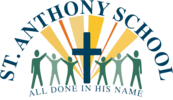Catholic Education
Your Catholic taxes for your Catholic schools
Education property taxes provide an important connection between Catholic school boards and their electors.
Catholic school boards have a commitment to ensuring a strong connection with Catholic electors in their communities.
Catholic education is funded through education property taxes, grants, and general provincial revenue. However, in the fall of 2005, a bill was introduced in the Alberta Legislature to eliminate the education property tax, which raised concerns for Catholic school boards. The bill did not make it further than First Reading, but gained highly-publicized support.
Catholic electors must be aware of their right to support your Catholic schools through property taxes. The Alberta Catholic School Trustees’ Association (ACSTA) believes the education property tax provides a vital connection between Catholic separate school boards and their electors.
When this discussion reaches your local community, speak out for your faith-based schools and your right to support them with your local taxes.
Declare your support
Taxes declared in support of the Catholic separate school district in your municipality benefit your children. According to the Constitution Acts of Canada and the Alberta School Act, Catholic voters must direct their education taxes to Catholic separate school boards where possible.
To be sure your property taxes are supporting your Catholic school, you must declare your support as “separate” on your annual property assessment notice and tax bill. If your support designation is incorrect, it should be corrected by submitting a School Support Declaration form from your municipality.
A change in school support does not take effect until the next calendar year. You may also contact ACSTA at (780) 484-6209 or admin@acsta.ab.ca for help.
For more information download the ACSTA Your Taxes for Your Catholic Schools brochure.












